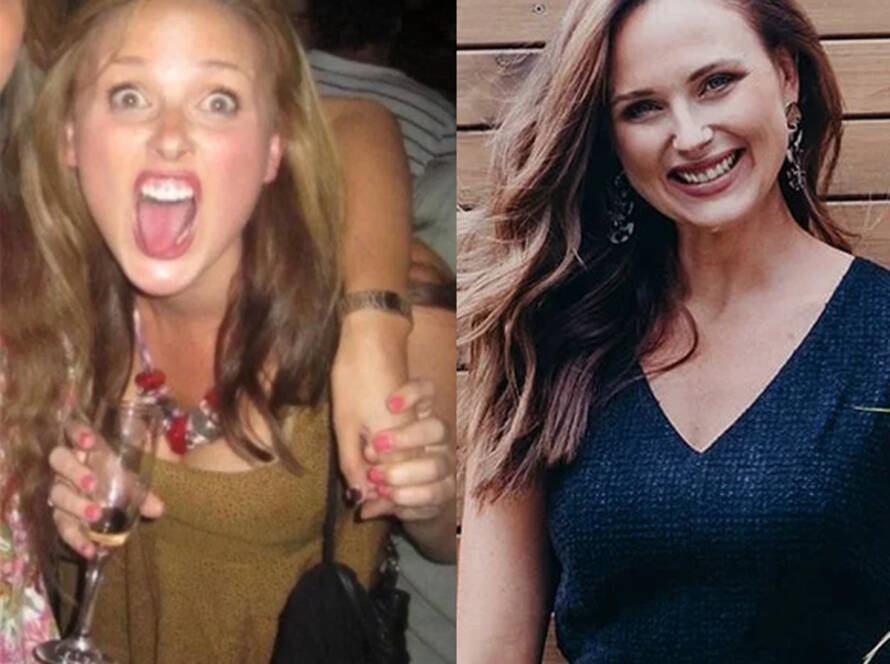The Fight
As I drift in and out of consciousness, I hear the sound of the chains rattling around me. I realize that I am hanging upside down, suspended by a chain that is wrapped around my ankles, and I am encircled by a small group of people that very much want to harm me.
One thing to do: fight!
During the struggle I see a familiar face in the crowd – someone who should be helping me – but they are not. Instead, although not actively participating, they seem to be very much on-board with what the others are doing – even urging me to not fight back.
The audacity of this just angers me more and I really try to fight back even harder. Pretty quickly things fade to black…
That was the scene for me in December of 2018.
The Reality
However, the truth of the situation was much different than what I believed. My true reality was not what I thought it was. The fact is, I was coming out of a 10-day coma due to severe pancreatitis and related complications.
In my half-conscious state, what I thought were chains around my ankles were actually hospital bed restraints. The group wanting to hurt me was actually a team of doctors and other medical professionals trying to remove my intubation tube and a few other things, and the familiar face in the crowd was a loved one trying to help them calm me down.
They later told me I was fighting hard – so much so that they had to bring in some reinforcements. The reason for the fight was because, in my reality, I mistakenly perceived the event as an attack like I described in the opening paragraphs above.
Although that perception was off, as I finally did start to come out of the coma, it started to become clear to me that, although not as immediately threatening as a group actively trying to harm me, my true situation was equally alarming and concerning…
The truth was I had been in the ICU, having more than one near death experience, and was in a coma for about 10 days, followed by an extended hospital stay!
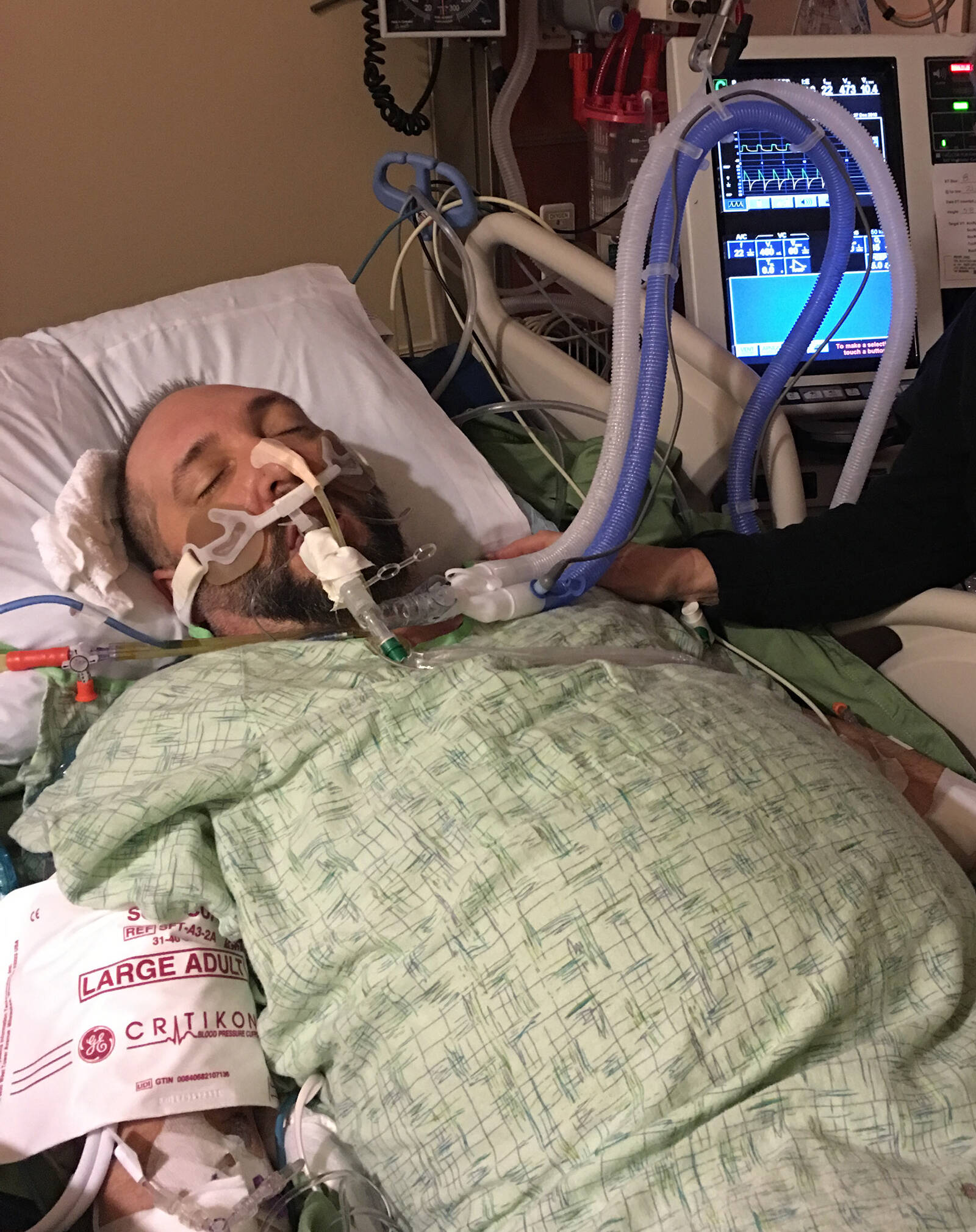
What Just Happened?
Unless you’ve experienced something like that first hand, I think the magnitude of it is hard to fully understand. I’m not sure I am capable of even describing the feelings and emotions that come in like a flood in a situation like that – where you’ve been out for 10 straight days and then awaken to find out you nearly died.
One the one-hand, I was elated to begin to understand that against the odds, I was still alive. Happiness is a massive understatement of how I felt about being able to see my wife, daughters, and family again after understanding how that almost never happened again. But on the other hand, there were a lot of negative emotions: guilt, shame, disappointment, regret, fear, etc. The thought of the damage I had inflicted on those I care about most hurt me MUCH more than any of the physical pain I was feeling at the time.
I was shell shocked! What just happened? How bad did I hurt my wife and daughters? What did I put them and others through that I care about? What were the long lasting complications going to be to my health?
These were just some of the initial questions and concerns. As I continued to recover from the coma over the first few days, I began to understand what had happened. But this also led to even deeper questions and a huge overall:
“What now?”
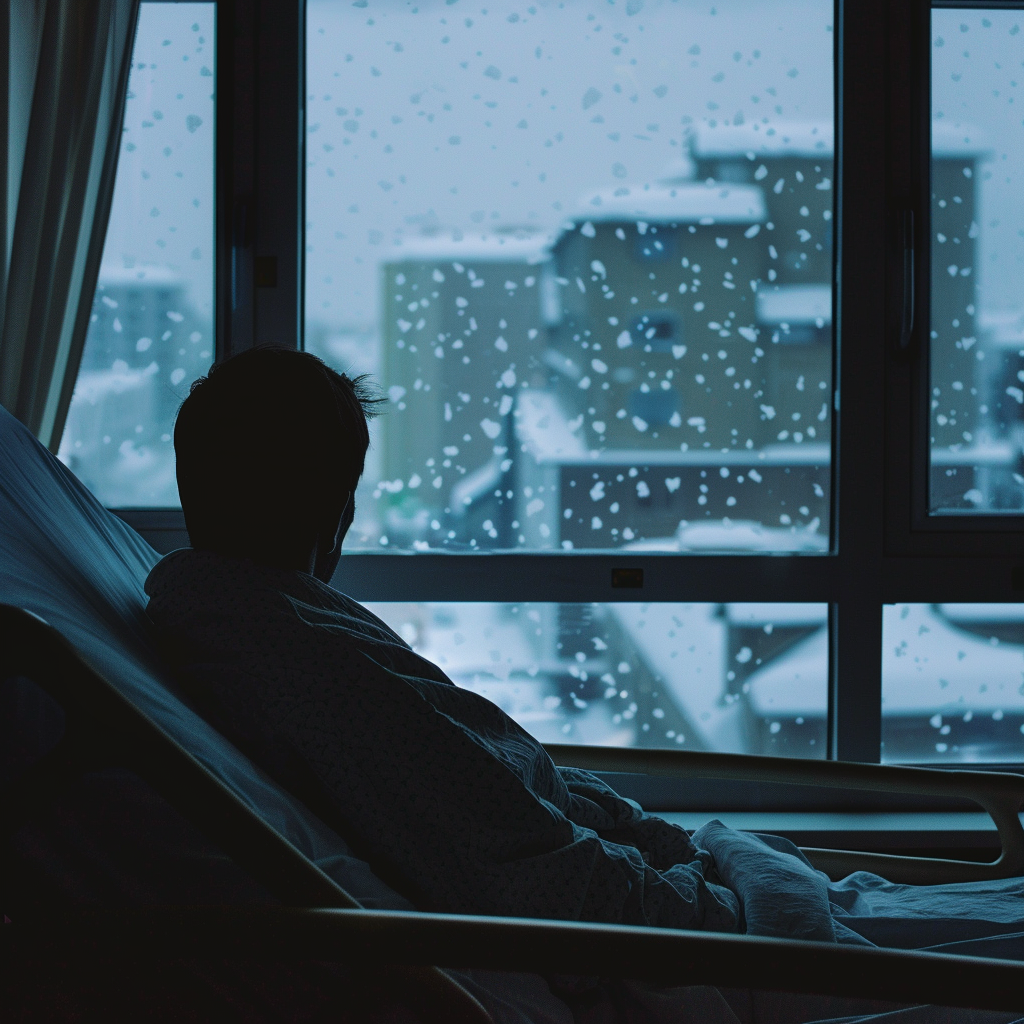
The Backstory
When I was 7 years old my dad left my mom and I. Throughout the rest of my childhood and into my teens and early twenties, my dad wasn’t completely out of the picture. However, our relationship was reduced to quick “visits”, and even those were hit or miss, with him living out of state for long periods of time. It was during this time that I began to understand that my Dad had an alcohol and drug problem and I can vividly remember visiting him in rehab centers. I believe this experience, both consciously and subconsciously, had an effect on me as it related to alcohol, but it would be a couple of decades before it surfaced.
During the rest of my childhood and teen years I learned to be highly independent in the absence of a live-in dad and a mother that was working full-time to support us. This independence led me to being a pretty good entrepreneur and a prolific autodidact, which ultimately resulted in a whirlwind of high stakes and high spirits in my twenties.
Who Needs Alcohol?
At that point and into my early 30’s, life was a series of successes and celebrations. Music was (and still is) a huge part of my life. I found comfort there when I was young, leaned in during my teens and twenties, and eventually became a professional musician working in the industry, teaching, and gigging all the time.
In my late twenties, my wife and I wanted to begin to build a family. I transitioned from music being my main focus to stock trading, and I became a prolific day trader in the late 90s.
In addition to trading during this period, I also had a series of successful business ventures. It seemed I was blessed by the Midas touch, with each venture more successful than the last. At the pace I was on, retiring in our 30’s was very much within reach.
During this time, alcohol was a distant thought, untouched and unneeded. And for years I never even touched the stuff, even though it was everywhere around me, from my rock & roll gigging days to the high-flying trading scene. But it barely made a blip on my radar. Life was fast, exciting, we were crushing it, and booze? Just a side character in the grand scheme of things. For a long time, I also wore my sobriety as a badge of honor. I knew I was different in that regard and I was proud to own that as part of my “alternative rock” identity.
The Slope Starts Getting Slippery
Gradually, alcohol sneaked its way in. It started off as the guest you didn’t remember inviting but didn’t mind having around. A drink to toast a win, a sip to ease the tension. When life threw curveballs, like dealing with my wife’s postpartum depression alongside her, that occasional guest became more like a roommate. Still, it all seemed under control.
Grinding, Stress, Drinking to Sleep & The Payoff (with a cost)
Fast forward, around 2006 the trading game had run its course. And we, like many, did not escape the financial meltdown of that era—it seemed the Midas touch was gone. But we regrouped and over the next 10 years I focused on starting and building new businesses. The pressure was on like never before. I now have a young family and others counting on me.
This made me feel real heavy stress for extended periods of time. Mr. Occasional Drink morphs into Mr. Can’t-Do-Without. It was subtle at first, then suddenly I was deeper than I had ever intended. The drink, once a small aspect of certain activities, became a crutch, blurring the lines between moderation and excess.
Truth be told, it wasn’t all just about coping though. There was a definite change in our lifestyle and we enjoyed partying to excess with friends on many, many weekends.
There were a lot of very stressful highs & lows including tough financial periods during these years. But ultimately, we were very successful with most of these companies, including being instrumental in taking one where I was a Founder from start-up to a nice exit.
However, by this time it was the end of 2018, and the damage had been done.
Overtime, what started as very moderate, turned into consistent nightcaps to “help me sleep”, which eventually led to alcohol abuse issues that ran much deeper than I was aware of – my internal organs were taking a beating.
At the time though, just like many abusers think, I thought I was “managing” it well, and was able to control it like everything else in my life. After all, I had none of the common outward problems associated with alcohol. I mean, I didn’t look like what I thought a stereo-typical “alcohol abuser” looks like.
I did start to feel like I was consuming too much, but I thought I was still fine: functioning, even HIGHLY functioning. In hindsight I would still say that was true: I was a super-high functioning alcohol abuser – and mostly a closet drinker. But there was really a huge cost being paid.
The Staycation from Hell: My ICU Christmas
It was a gradual shift, from control to chaos, masked by the guise of coping and unwinding. Eventually I added a fair amount of general hard partying into the equation until the tragedy of this not-so-glamorous tale finally hit in December of 2018 right around Christmas.
What should have been a festive break turned into an emergency, with me fighting for my life in an ICU battling severe pancreatitis brought on by my heavy drinking. This, mixed in with some predisposed genetics created, as the doctors called it, “the perfect storm”.
In contrast, it was supposed to be a much deserved stay-cation. But instead it turned near-fatal, leading to a fight for life in the ICU literally during the Christmas season. It resulted in several near death experiences, a 10 day coma and about a month long hospital stay.
Brutal stuff.
It was a chilling scene: family spending all night on Christmas Eve in my hospital room, faces etched with fear and confusion, as I lay unconscious, teetering on the brink of existence.
To this day, the thought of the pain I caused them then cuts deeper than any physical agony I endured. I still have panic-like feelings when I think of what that Christmas morning was like for my wife.
Realization of the Rarity of My Survival
As I began to recover from the coma over the course of the next week, a unanimous message from the doctors became obvious: ”You don’t realize how lucky you are to be here right now.” At first I thought, that’s probably what they tell everybody with drinking issues.
But that thought quickly faded when it became very apparent to me that it wasn’t just 1 or 2 doctors saying this. More than half a dozen doctors, many of whom I didn’t even remember, shared this sentiment. They’d pass by my room, do a double-take upon seeing me, and retrace their steps to share their astonishment. Their looks of surprise and the diverse ways they expressed that I was an exception to the rule underscored just how extraordinary my survival was. Each would come in to tell me all in their own way using different wording:
“You have no idea how lucky you are to be here right now.”
“Most people that get to where you were do not come back.”
“We thought we lost you twice, but you’ve beat the odds.”
“You have a beautiful amazing family, take advantage of this unlikely second chance to be there for them.”
“You’re a miracle.”
etc.
I quickly understood that these pop-ins were not part of their scheduled routine, but instead they were more of the unscheduled astonished “I gotta check this out” rubberneck variety. When I realized this and I heard it like that in so many different ways, including seeing the charts, data, and bio-levels to back it up, the message was CRYSTAL CLEAR to me, I was undeniably given a second chance.
The doctor’s continued individual astonishment over the next couple of weeks really cemented the realization that I was ABSOLUTELY granted a second chance, a rarity given my medical condition.
A Memo From the Head Office
One night during my recovery in the quiet solitude of a dark hospital room, as I lay suspended between the realms of life and death, feeling a magnitude of emotions at the same time, a profound encounter unfolded.
It wasn’t marked by grandeur or the pomp of religious ceremony, but was instead a deeply personal, spiritual exchange. In that moment of absolute vulnerability, a voice broke through the silence—a divine whisper that carried with it a weight and clarity that was undeniable.
The overarching message was one of love and forgiveness. It was just like a good human father deals with a child after they royally screw up, it was like arms of unconditional love and forgiveness wrapped me.
But also, just like a good human father would do, he challenged me, “You’ve got a second chance, now go use the capabilities you have to do some good.”
This wasn’t about religion in the traditional sense; it was far more intimate. It was a direct communication from God. Though I recognize others might interpret such an experience differently, this wasn’t about doctrines or dogmas but a personal and transformative spiritual experience. This was different from other still small inner voices I’ve heard before, this time there was no questioning it, I absolutely knew.
I K.N.E.W.
The message was clear and resonant: I was being given a second chance at life. This wasn’t merely a reprieve from the brink of death; it was a calling, a divine directive to utilize this newfound lease on life for a greater purpose. It was an urging to harness my talents, my experiences, and my voice to help others, to make a difference in the battle many face with alcohol.
The call wasn’t about “quitting drinking” and then helping others to do the same. It was bigger. It aimed at enlightening others with fact-based insights, exploring nuanced pathways like moderation and mindful drinking, and highlighting both natural and medical alternatives.
The essence of this mission was to offer enlightenment and hope, to illuminate diverse strategies in navigating alcohol use, and to inspire a journey towards better understanding and choices.
5+ Alcohol Free Years Later: Reflecting & Progressing
Over five years have passed since that time and my pivotal December, marking my journey of living alcohol-free. This period has been transformative, teaching me to confront challenges head-on rather than seeking refuge in alcohol.
In hindsight. I realize now that prior to this life changing event, because I was literally under the influence, the fog, I didn’t realize the damage that was occurring. I would be so afraid of what I would be giving up and how miserable I would be without alcohol, that I was paralyzed to take any long term action. But I’ve come to believe that that is part of the drug’s influence. It makes it really easy to deceive yourself into false narratives, scenarios, and logic.
However, for me personally, as well as many others that have reduced their drinking, they find the polar opposite is actually the truth. For me, the little bit I gave up by leaving alcohol was nothing compared to what I gained.
The fear of a life without alcohol that once had me shaking in my boots is a sentiment I now recognize as the deceitful nature of addiction. And contrary to those fears, without alcohol, my life has flourished in ways I could never have imagined. Here is just a very small list of some examples:
- My wife reports that she “has her man back”
- My kids have commented multiple times that I am just so much more present now
- I am much better at not sweating the small things now
- I lost 35 pounds
- My mental energy is not wasted on the yo-yo cycle of thinking about my behavior with alcohol
- I’ve had adventures across the globe, from Ireland to Alaska
- I’ve been enriched by reading over a hundred books that have broadened my perspectives
- I’ve rekindled passion for music, resulting in three deeply personal songs
- I’ve accomplished significant professional achievements
- I have an inner peace that has reshaped my approach to life’s challenges
- My self image and confidence are improved because of overcoming this alcohol bear
- I am involved in helping others that are battling alcohol issues
And that is just a very, very partial list of how things are better.
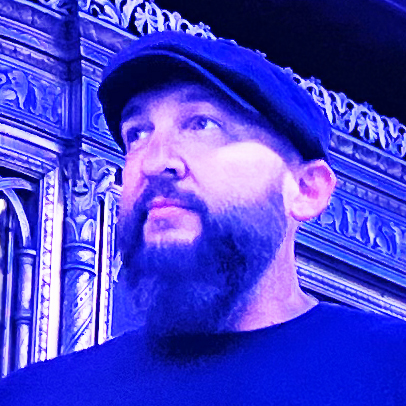
The Real Not-So-Obvious Losses of Alcohol
Reflecting on the true losses of my previous path with alcohol, the cost becomes painfully clear in the context of the profound experiences I nearly forfeited. Had my journey ended prematurely, I would have missed witnessing the miracle of my first grandchild’s birth, the fulfillment of seeing the impact of following my calling to help others, and the deepening bond with my wife as we step into our next chapter together. My rekindled involvement in music—a passion that breathes joy into my life—would have remained dormant. The countless adventures and meaningful experiences with my family across the globe would be unexplored chapters.
Beyond these significant milestones, it’s extended to the seemingly small, yet profoundly impactful moments that paint the canvas of daily life and a newfound appreciation for life’s simplicities, like the savoring of an unexpected good meal, the shared experience of teaching my daughter to drive a manual stick shift, the peace gained from quiet mornings of reading & thinking with a cup of coffee, and the profound satisfaction of adding value to others’ lives, both in business and personally. And then there’s the privilege of guiding and witnessing the subtle, yet significant transformations of my daughters as they bloom from their teens and early twenties into incredible adult women.
These instances underscore the importance of our choices and their ripple effects on our loved ones and the broader tapestry of our lives.
Recognizing the profound impact of our choices not just on ourselves but on our loved ones is crucial. The narrative of “A Wonderful Life” comes to mind and resonates deeply with me, reminding us of our interconnectedness and the ripple effects of our actions.
In essence, the journey away from alcohol has revealed the irreplaceable value of clear, present living—not just for oneself but for the enrichment of those we love.
My story, a dramatic arc from the heights of success to the brink of death and back, serves as a narrative of caution, hope, and renewal. It’s a reminder that it’s never too late to rewrite the script of our lives, to emerge from the shadows of our choices into the light of possibility and change. And a positive change doesn’t just benefit ourselves, it impacts the people you care about most.
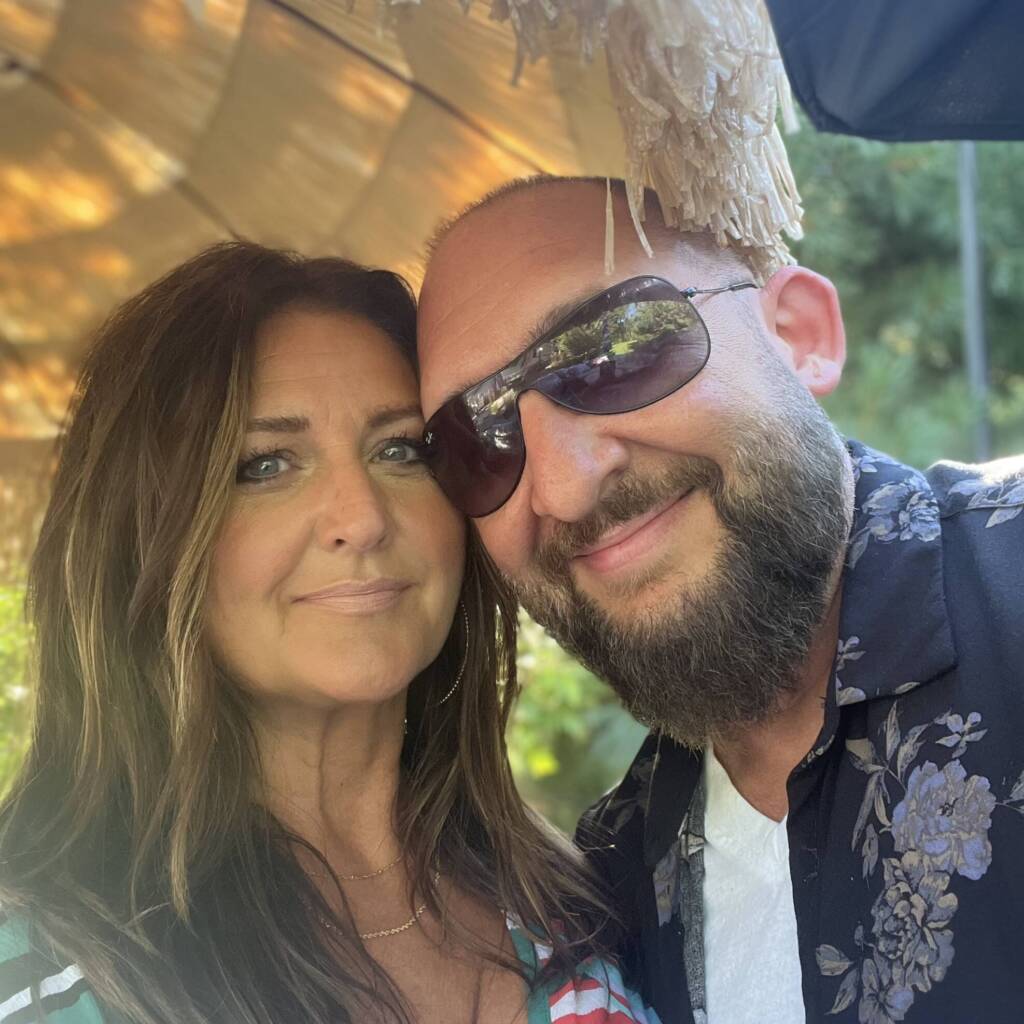
Quitting Drinking Isn’t the Only Door
In sharing my story, I want to be very clear: I’m not advocating for complete abstinence from alcohol.
I firmly believe that there are alternative paths that work. Mindful drinking is possible for some. It’s entirely possible for some individuals to recalibrate their consumption, opting to moderate rather than abstain – my wife is in this camp. Meanwhile, others, like myself, may choose total abstinence, perhaps exploring legal natural or medical alternatives as part of their journey. Each journey is unique, and finding a path that aligns with one’s goals and circumstances is key.
Perfect, I Am Not
I really do feel that I am nothing special in regard to alcohol. Many others possess greater experiences, qualifications, and skills to offer support in this area.
I also do not want, for one second, to try to portray myself as some perfect person that has everything all figured out. I don’t. I have plenty of other issues and flaws that I’m still working on. But I refuse to let the fact that I’m not perfect, prevent me from helping others in regard to alcohol.
The truth is I am still learning too. Despite being alcohol-free for over five years, I still have much to learn and to understand.
Wrap-Up: Gleaning Wisdom from Luke’s Journey
Harnessing the Power of Second Chances: Luke’s harrowing experience underscores that life’s second chances are precious gifts. They offer us the opportunity to reset, rethink, and rebuild our lives on a foundation of our choosing.
Awareness and Choice are Key: The transition from unconscious consumption to mindful awareness about alcohol showcases the power of informed choice. Recognizing the role alcohol plays in our lives opens the door to change.
Diverse Paths to Wellness: Luke’s story highlights that there is no one-size-fits-all approach to alcohol. From moderation to abstinence, the journey is personal, and what matters most is finding a path that resonates with your life and values.
Owning Your Narrative: Embrace your story, with its ups and downs, as a source of strength and inspiration. Your journey, like Luke’s, is unique and can empower others facing similar struggles.
The Strength in Vulnerability: Admitting we don’t have all the answers, that we’re continuously learning and growing, is a form of strength. It builds genuine connections and fosters a supportive community where everyone can contribute and benefit.
Actions to Consider Inspired by Luke’s Story
- Reflect and Reassess: Take a moment to assess your relationship with alcohol. Is it serving you, or is it time for a change?
- Explore Your Options: Whether it’s cutting back, quitting, or somewhere in between, research and consider the approach that feels right for you. Remember, you’re not alone in this journey.
- Build Your Support Network: Surround yourself with people who support your choices and encourage your growth. Whether it’s family, friends, or a community like Second Song, a strong support system is invaluable.
- Find Your Second Song: Discover what brings you joy and fulfillment beyond alcohol. Dive into hobbies, passions, or activities that enrich your life and give you a sense of purpose.
- Share Your Experience: If you’re comfortable, share your journey. Your story could be the beacon of hope someone else needs to hear to start their own path to recovery or moderation.
Luke’s story isn’t just a testament to personal resilience; it’s a call to all of us to reexamine our lives, make conscious choices, and support each other in our journeys. Let’s take inspiration from his courage and conviction to chart our own courses toward a healthier, happier life.



